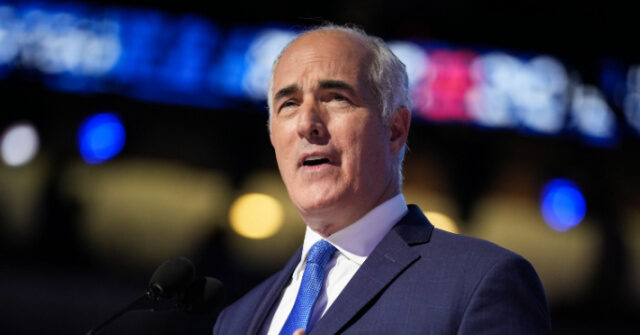
An activist historian in the United Kingdom, who rose to prominence as a supporter of Black Lives Matter, recently expounded to the Times on what he sees as the proper role of historians: “I think [the job of historians] is to try to stand there at this arsenal of dangerous ideas and to make it more difficult for people to raid that arsenal to use it for their political projects. It is to complicate the picture; it is to show that these simple assertions are much more nuanced; it is to muddy the waters and try to de-weaponise the past.”
This style of black activist retelling of history can be described as antiracist revisionism, as it conforms to the methods and goals of the ideology of antiracism. Antiracism is defined as “a paradigm located within Critical Theory utilized to explain and counteract the persistence and impact of racism.” Within this paradigm it is not enough for one not to be racist; it is necessary to be antiracist, meaning to interpret concepts, ideas and facts through the lens of critical race theories.
Antiracist revisionism retells the history of Western civilization as a culture riven with racism and exploitation of black people, drawing upon critical race theory perspectives to explain that all history is one giant race war. To antiracist revisionists, history is all doom and gloom for people who are not white, and any discussion of history that fails to highlight oppression and exploitation of black people is to be dismissed as “racist.” This is what they mean by reinterpreting history through the lens of race.
One of the most baffling traits of antiracist revisionists is that they seek to dismantle all aspects of Western culture while insisting that anyone who disagrees with their racialized interpretations of the world is thereby “starting a culture war.” According to antiracists, the only way to avoid starting a culture war is to accept their message that Western culture is pure evil. This explains why antiracists always seem to be very surprised when people object to their destruction of historic monuments – they see destroying history as good antiracism, and objecting to their destructionism is therefore needlessly “starting a culture war.”
In what James Lindsay has called “the iron law of woke projection,” they do not realize that the only people starting a culture war are those seeking to destroy Western culture, namely themselves. As Tom DiLorenzo reminds us, “A definition of ‘projection’ is when one baselessly accuses others of doing something unsavory, immoral, or illegal that he is actually doing.”
The methods of antiracist revisionists are therefore entirely opposed to the tradition of historical revisionism.
The true aim of revisionism
Historical revisionism is a good thing if it means highlighting important aspects of history that are unknown, overlooked, or forgotten. Ralph Raico described revisionism as essential to understanding the true causes of war, as most warmongers do not reveal the true reason for their wars of aggression. Without the efforts of revisionists, we might never unmask the true motivations behind disastrous wars. For example, we are told by most historians that Abraham Lincoln waged war on the South “to free the slaves.” Those who seek to justify aggressive wars are aware that if they do not advance a “just cause” for their war they may never get popular support for it.
For example, the war in Iraq was launched, we were told, because Sadam Hussein was amassing weapons of mass destruction. Raico observes that for these reasons, in the history of war truth is often masked by invented “just cause” explanations:
Pretexts and evasions have proliferated. In democratic societies, these are endorsed—often invented—by compliant writers and intellectuals. The unmasking of such excuses for war and war-making is called historical revisionism, or simply revisionism. Revisionism and classical liberalism (what is today called libertarianism) have always been closely linked.
Raico highlights the strong libertarian anti-war tradition, adding:
Murray Rothbard was the heir to this whole legacy, totally familiar with it and bringing it up to date. Aside from his many other, truly amazing contributions, Murray and his colleague Leonard Liggio introduced historical revisionism to the burgeoning American libertarian movement. This is a work now carried on with great gusto by Lew Rockwell, the Mises Institute, and its accomplished scholars.
Confederacy and reconstruction
In The Consolidation of State Power via Reconstruction Tom DiLorenzo extends the revisionist tradition described by Raico to understanding the war for Southern independence and the “reconstruction” that followed in its aftermath. DiLorenzo explains how the history of reconstruction written by William Archibald Dunning was later “revised,” primarily in the 1960s, by Marxist scholars. The Marxist revisionists did not dispute the historical facts of the “Dunning School.” Instead, “Relying heavily on Marxian class conflict theory, they merely painted what they considered a more ‘enlightened’ picture of the era.”
The new “enlightened” Marxist analysis of the Civil War era claims that Confederates were in some way inherently “racist” as distinct from other men of their time. They see the war as one between “racist” oppressors in the South and “antiracist” abolitionists in the North. To sustain this claim, not only must they depict the war waged by the North as a war whose purpose was “to free the slaves,” but they must also depict the South as driven by one goal only: racism.
This leaves the antiracist revisionists with a residual difficulty: accounting for the thousands of black men who supported the Confederate cause in various capacities. This has proved to be a challenge. Their theories of oppression are unable to account for black people fighting on the Confederate side.
For example, Samuel W. Mitcham in his biography of General Nathan Bedford Forrest recounts that General Forrest was accompanied to war by 43 of his slaves, who remained at his side for the duration of the war and of whom he later said “Those boys stuck with me. Better Confederates never lived.” Antiracist revisionists say this should all be attributed to coercion. Their theory is that slaves joined the war simply because they did whatever they were told, and free blacks joined the war because they were afraid of racist Confederates and therefore also did whatever they were told. As slavery is a condition inherently based on coercion, it follows in their theory that the entire history of America from 1776 to 1865 is a history of coercion; and after 1865 it remains a history of total coercion due to what they call “legacies of oppression.”
For that antiracist theory of coercion to be true, all wartime accounts in books, newspapers, journals, and military records, detailing the determination of black people who volunteered to fight in support of the Confederate cause, would have to dismissed as false – a rather bewildering approach to the study of history.
Antiracist ideology with its themes of racism and coercion is not genuine historical revisionism, as historical revisionism does not consist in simply announcing that all history is false merely because it fails to conform to one’s preferred ideology. Revisionism relies on producing evidence that contradicts the prevailing historical accounts. For example, those who think Lincoln waged war “to free the slaves” might have a compelling reason to revise their opinion of him when they read, in Lincoln’s own words cited by DiLorenzo, where Lincoln said:
I will say then that I am not, nor ever have been in favor of bringing about in any way the social and political equality of the white and black races – that I am not nor ever have been in favor of making voters or jurors of Negroes, nor qualifying them to hold office, nor to intermarry with white people; and I will say in addition that there is a physical difference between the white and the black races which I believe will forever forbid the two races from living together on terms of social and political equality.
Originally Posted at https://mises.org/






